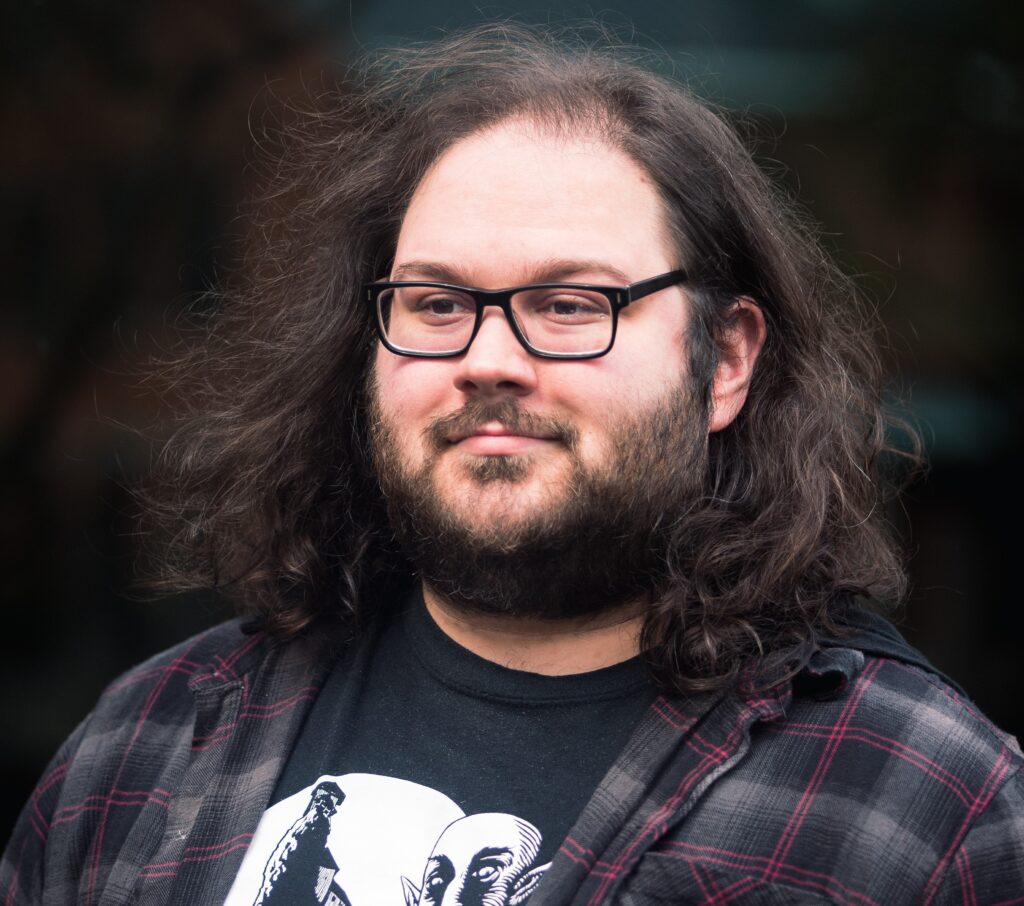
(David Priymak / The VanCougar)
Over a year into the pandemic, many college students still find themselves in quarantine, and watching movies and TV shows have become an essential role of escapism within their everyday schedules. From discussing action-packed films to B-horror classics, these VanCougs delve deeper into their cinematic favorites.
Barysh Agaliyev, senior digital technology and culture major, finds that watching different films creates different experiences for the viewer. Agaliyev references two very different movies, “The Perks of Being a Wallflower” and “Lord of the Rings”, which both offer a sense of comfort and nostalgia.
“‘Lord of the Rings, for example, I like it for the overall experience. I love music, and even classical music, and hearing all those compositions is very pleasing. But it’s also visually beautiful and the [series] takes on an adventure, that’s the other aspect of it,” Agaliyev said.
Watching adventure films featuring incredible film scores, scenery and enriching storylines seems like the perfect escape when being stuck inside. However, cinematic epics are not for everyone, as Agaliyev explains and sometimes a relaxing coming of age film might suit someone else’s preference.
“I mentioned ‘The Perks of Being a Wallflower,’ I think why I liked that film so much is that as a viewer it’s [nice to] see the younger version of yourself and reflect on that,” Agaliyev said.
In contrast, fellow digital technology and culture senior, Joel Clapp, finds most of their comfort in the horror genre, an interest that grew from their love of films at a young age.
“I’ve always been someone who’s interested in cinema. My family was very big on family movie nights, watching TV together, that was our kind of daily dinner ritual. And so I grew up watching a lot of movies, and as a self-identifying creative, I always liked to pick them apart, find the parts of them that I liked, what did and didn’t work. I always imagined making my own movies someday, so I really was drawn to cinema at a young age,” Clapp said.
For Clapp, films like Sam Raimi’s 1987 comedy B-horror classic “Evil Dead II” serve as the perfect stress release.
“‘Evil Dead II’ is one of my all-time favorites. I think it perfectly hits that balance in the series of the campy comedy, but also still being really dark and horrific. The first one was a little too serious, the third one was pretty much downright comedy. I love the whole series, and all of its branch off media and everything, but I think [‘Evil Dead II’] perfectly hit that middle ground for me,” Clapp said.
When asked how cinema can be a source of comfort for college students to turn to, Agaliyev and Clapp note similar ideas. Both notice that quite a few of their fellow students have resorted to rewatching classic sitcoms like “The Office” or “Friends.” However, when considering their own opinions on the matter, Agaliyev believes sitcoms hold great potential when rewatching them.
“[These sitcoms are] something you can keep re-watching and re-watching because you know you’re gonna have a good time,” Agaliyev said.
Robert Kugler, an integrated strategic communication major, used to turn towards sitcoms as a form of background noise, but now finds that with watching shows like How I Met Your Mother, characters begin to grow on you after watching for several seasons.
“You kind of get to know them a little bit, like family, and always keep on waiting for the invitation to Marshall and Lily’s party, or their reunion,” Kugler said.
On the other hand, Clapp finds that sitcoms do not give off the same satisfaction as films, explaining how easy it is to become too invested in the lives of fictional characters, which might potentially cause unwanted feelings of anguish during such a difficult time.
“Our brains can’t quite tell that the people on TV are characters and it’s fiction. So, we end up getting emotionally invested in these characters in a similar way that we do with real friends. That’s why we can feel a kind of heartbreak when we reach the end of the series, because we think we’re going to, you know, miss our friends,” Clapp said.
Although one might feel a sense of heartbreak at the end of a film or show, the emotional bonds developed through TV screens, both factual and fictitious, have become one of the few instances which make such an unprecedented time more bearable. For these students, cinema presents itself as the forefront of their relaxation and comfort, and might continue to do so as the pandemic surges on.
